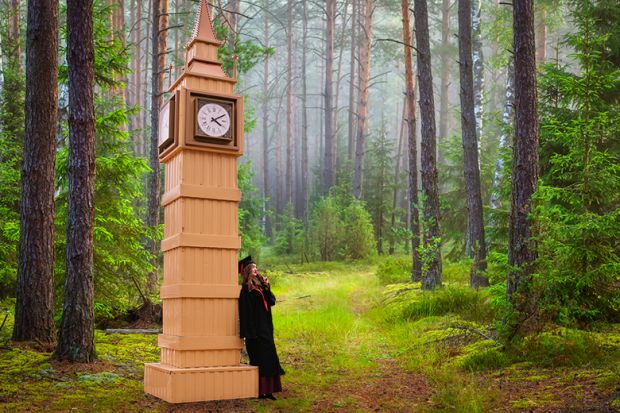An influx of MPs with university backgrounds could help the higher education sector win crucial battles on policies such as post-study work visas and end the current negative “framing” of educational expansion, experts have predicted.
With Labour currently leading the polls by 21 points, it is likely that several candidates from academia could take their seats in parliament in the autumn.
Among them are Labour’s Marie Tidball, a University of Oxford law researcher standing in Penistone and Stocksbridge; Kanishka Narayan, a former Stanford University innovation fellow set to take Vale of Glamorgan; and economist Jeevun Sandher, who is contesting the potential swing seat of Loughborough. Durham University’s Sam Rushworth is also set to retake Bishop Auckland for Labour; while former minister Douglas Alexander – who has held several visiting professorships since leaving office – is also set to return to parliament after he was selected in the likely swing seat of East Lothian.
For the Conservatives, Andrew Snowden, who worked in the vice-chancellor’s office at the University of Salford for several years, is tipped to take Fylde; while Queen Mary University of London law lecturer Paul Kohler could win Wimbledon for the Liberal Democrats.
At the same time, several MPs from the New Conservatives group, who have claimed “too many people go to university”, are predicted to lose their seats.
Nick Hillman, director of the Higher Education Policy Institute, said “having more MPs with a background working in universities will help the sector”.
He also noted that “as Labour are more likely to represent towns and cities, they tend to have a higher proportion of MPs with a direct constituency interest in the health of the sector”.
“MPs who have universities in their patch tend to instinctively understand what these institutions do – someone like Nicky Morgan, who represented Loughborough, was very pro-universities for this reason,” said Mr Hillman.
While likely to be more supportive, these MPs would “not automatically become lobbyists for universities” and could “put a different kind of pressure on universities”, he added.
“They may want to see universities working more closely with their further education college or local businesses, and as seen in Australia and Canada – where left-wing governments are in power – they might not do exactly what universities want on international students.”
“If Labour do win with a stonking majority, however, there is the opportunity to do something radical like removing students from immigration targets,” he added.
Andrew McRae, dean of postgraduate research at the University of Exeter, said he believed the Conservatives’ campaigning on “rip-off degrees” would force Labour to “confront key issues, such as funding and international students”, and to do so “with greater realism”.
Having more MPs with a university background would be useful, he added, because “so much of the challenge is to turn around perceptions and rhetoric, [although] there’s a sense that we’re witnessing the last gasp of the Tories’ framing”, he said.
Alex Bulat, who has taught social sciences at several universities and who is Labour’s candidate for Huntingdon, said her experience in higher education helped her appreciate its numerous roles and social functions.
However, she wanted to see a more “joined-up system” between universities and other parts of education. “The government doesn’t have a proper skills strategy, so I think universities should think about how they can work better with industry and with schools to address these training gaps,” said Dr Bulat.




